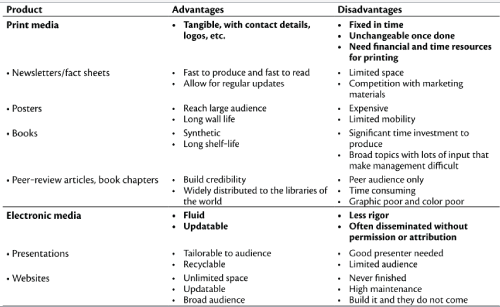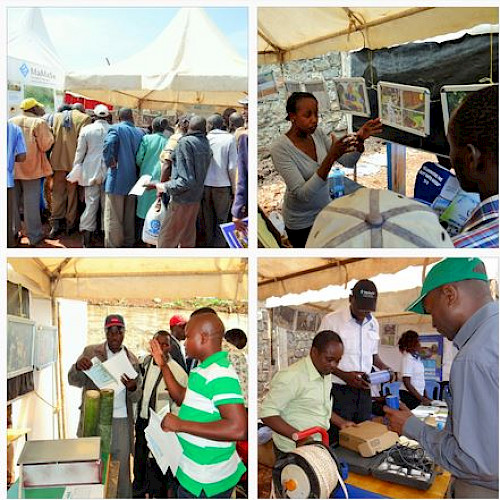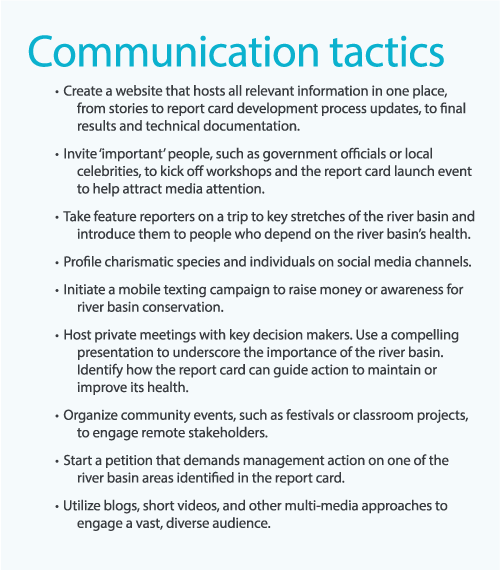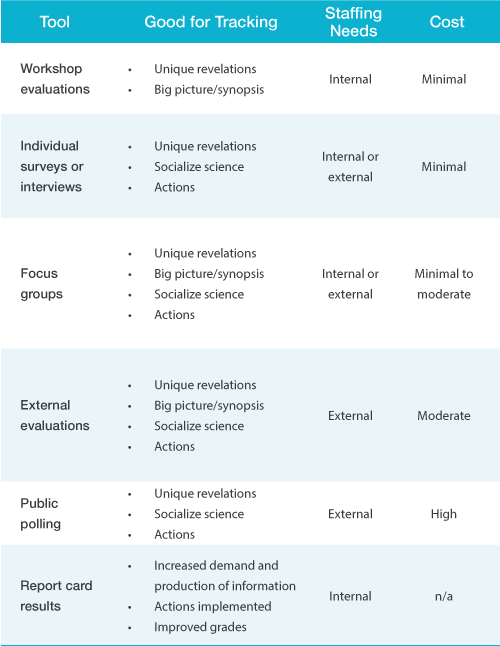Telling the River Story
Kennedy Onyango · | Environmental Report Cards | Science Communication | 6 commentsLast week the Healthy Rivers For All class held its sixth session, during which our discussion centered around sharing the grade. This is the fifth step in the development of a river basin report card, after the threshold and grade have been determined. Every river has a story to tell,and the story depends on how you package it. Quite often scientists concentrate on the collection and analysis of accurate data but forget that this is just one piece of the larger puzzle. Documenting and packaging the results in a manner that non-scientists can understand is as important as collecting and analyzing data if we are going to make any meaningful positive change to our environment. It is at this point that scientists sometimes realize that they can’t be good at everything and sometimes need to seek professional support from communication experts.
A communication strategy comes in handy for ensuring that the information sharing process is well-structured and targeted to the right audience. In the modern world, we have many forms of media through which to tell our story. However, it is critical to consider the pros and cons of each form of media before settling on the most appropriate. Having an online version of the report card is necessary since over 50% of the public can access web media. The media should be part and parcel of the report card development process. As we actively involve the media, we should also remember that sometimes the media intentionally or unintentionally distorts information, thereby creating a different public perception than what was originally intended. Therefore, there is great need for scientists to strategically frame their story in order to tell the desired message.

Getting the timing right influences the public reception of any report card. For instance, if the WWF-Kenya, Mara program was to produce a report card and launch it when the general elections were about to be held, chances are very few people will even bother to look at it. On the other hand, if we were to launch the report card during the annual Mara Day celebrations, most of the stakeholders in the basin will most likely want to listen to what we have to say.

Furthermore, launching the report card before a long weekend and earlier in the day also allows stakeholders and the media ample time to talk about the report card. Most importantly is the need to limit the time between data collection and data release. This ensures that the report card is launched when the thoughts are still fresh in stakeholders' minds and is also reflective of the current environmental condition.

Dealing with the fear of the unknown is an inevitable part of developing a report card. The first time developing a river basin report card has never been a walk in the park. There is always some fear of not knowing how people will react to new initiatives, and rightfully so! All students and instructors in our class who have developed a report card before agreed that there is always some 'drama' when launching a first report card for a region. Practitioners who are developing report cards for the first time should be encouraged to take the drama positively because it often creates momentum for the right course. The drama should not prohibit the sharing of good news because there is always high appetite for new ideas. As a matter of fact, developing a report card for the first time is an opportunity to celebrate because it shows dedication towards a healthy ecosystem. Any negatives identified during the process should be investigated and addressed with positive solutions to assure the public that we are working toward a more resilient and sustainable future.
Evaluating report cards, either internally or externally, is a good reality check that should be embraced, as painful as it may be. Evaluation can afford the opportunity to make necessary adjustments before a launch. It also can ensure that whatever information we share with the public tells the true story. However, don’t let criticism hold you back because there is always room for improvement.

Tackling Report Card fatigue is sometimes necessary. It is very easy for the public to get fed up with grades or loose interest in report cards, especially when they don’t see any positive change in the score. To avoid such scenarios, it is critical that report card practitioners keep the conversation fresh by being creative. For instance, one could collaborate with school kids to develop a report card that targets kids, or develop a supplementary publication regarding the river's health and share it with the public. Whichever approach you choose, make sure the language is right because if the conversation is too biased towards hard science, you are likely to lose the attention of the audience.
References
1. Costanzo, S.D., Blancard, C., Davidson, S., Dennison, W.C., Escurra, J., Freeman, S., Fries, A., Kelsey, R.H., Krchnak, K., Sherman, J., Thieme, M. Vargas-Nguyen, V. (2017). Practitioner’s Guide to Developing River Basin Report Cards. IAN Press. Cambridge MD USA.
2. Longstaff, B.J., Carruthers, T.J.B., Dennison, W.C., Lookingbill, T.R., Hawkey, J.M., Thomas, J.E., Wicks, E.C., Woerner, J. (2010). Integrating and Applying Science: A handbook for effective coastal ecosystem assessment. IAN Press. Cambridge MD USA.
3. Spitzer S. (2017), Five Principles of holistic science communication. Retrieved on 12th December 2017 from /blog/five-principles-of-holistic-science-communication/
Next Post > Science of Science Communication IV: What Future Conferences Should Consider
Comments
-
Irina 8 years ago
Thank you Kennedy for this nice blog of our last week's discussion. Particularly liked the drama paragraph with the recommendation of taking "the drama positively because it often creates momentum for the right course"!
-
Jodie Mehrtens 8 years ago
Great post. Good point about getting the timing right and great to have an example of looking to your target audience to see when they will be most receptive to your message (not during an election!). A river or water festival is perfect timing.
It's international year of the reef in 2018. We're all a bit excited about that in Queensland!
-
Judith 8 years ago
Haha, shouldn't you be charging for that kind of knweoldge?!
-
Katya Altman 8 years ago
This is a nice summary of the last week class. Visuals and links help to learn more about the topic. I like the example of Mara Day celebration for getting the timing right. It is beneficial to be aware of the timing and challenges of the report card process. These possible difficulties could be turned into opportunities to build meaningful connections with the community.
-
Simon Costanzo 8 years ago
Nice work Kennedy!
-
Ximena Celis 8 years ago
Very nice post Kennedy. I liked the part that you said in the communication strategy the pros and cons of each form of media before settling on the most appropriate, and of course, the momentum, as well as don´t be too technical, and speak according to the audience. I liked the examples you used. Thanks!